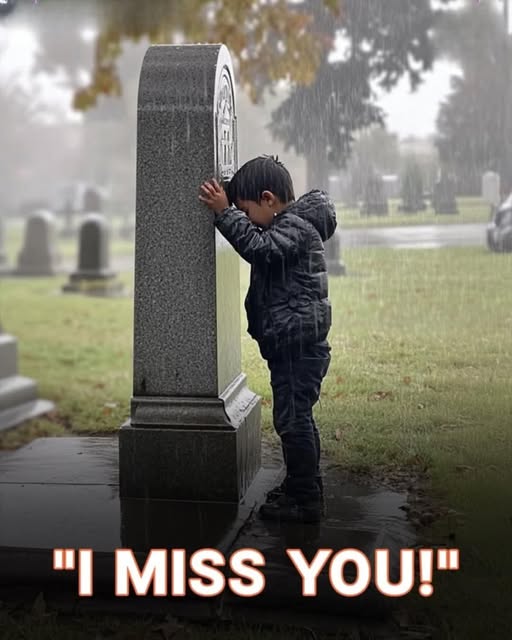The Wesenbergs’ darkest day began like any other, until they found their young son Ted lying still in the backyard pool. Paul instantly dove in, desperately trying to save him as paramedics rushed over—but it was too late. In an instant, their world fell apart.
Ted’s twin brother, Clark, was left behind, helplessly witnessing his parents drown in sorrow and blame. Linda withdrew into silence, barely eating or speaking. Paul grew bitter and angry. Their nights were filled with shouting, accusations, and tears. Meanwhile, little Clark hid under his blanket clutching a teddy bear, quietly weeping as his family unraveled.
Before tragedy struck, their home had been full of warmth—carefully made breakfasts, bedtime hugs, and laughter echoing through the halls. Now, Clark felt invisible, eclipsed by the loss of his twin. His parents were consumed by grief and anger, forgetting that their surviving son needed their love more than ever.
One evening, during yet another bitter argument, Clark reached his breaking point. He burst into their bedroom, pleading for peace, but was ignored. Heartbroken, he yelled that he hated them and ran out, clutching a bunch of dahlias he and Ted had once planted. He made his way to the cemetery—the only place where he ever felt truly seen: by his brother’s grave.
Sitting there, Clark poured out his loneliness and pain, telling Ted how much he missed feeling loved. Hours passed, darkness settled, and for the first time in months, Clark found a strange peace in the quiet.
Suddenly, leaves rustled nearby. A group of teens cloaked in black robes, faces hidden beneath hoods, appeared carrying flickering torches. One called out ominously, warning Clark he’d crossed into “their kingdom.” Frozen with fear, Clark watched until an older man’s voice interrupted.
“Chad, knock it off! How many times do I have to tell you to leave your cult nonsense out of my cemetery?”
The graveyard keeper, Mr. Bowen, stepped forward and scolded the teenagers. Clark ran to him, and the kind man took him to his nearby cottage. Over warm cocoa, Clark finally opened up about his brother’s death, his parents’ fights, and his deep loneliness.
Back home, Linda discovered Clark missing and panicked. She searched the house, called Paul, and recalling Clark’s last words—“I’m going to meet Ted”—rushed to the cemetery. Paul arrived shortly after. They found the teens chanting and burning report cards in a strange ritual.
Paul confronted them, and they said Clark was safe with Mr. Bowen. Through a window, they saw their son sitting quietly in the caretaker’s cottage, sipping cocoa.
Listening from outside, they heard Clark share how invisible he’d felt and how much he longed for happiness. Mr. Bowen spoke gently, encouraging Clark to give his parents another chance. He shared that he had lost his own family in a plane crash and explained how pain could turn into understanding when people choose kindness.
Clark nodded, hopeful. When his parents came inside, Linda embraced him tearfully, apologizing and holding him close. Paul thanked Mr. Bowen for looking after their son—and for unknowingly helping heal their family.
In the months that followed, healing began. Mr. Bowen became a trusted friend. The house, once heavy with sorrow, started to feel like home again. And Clark, though still missing Ted, finally felt loved by those who mattered most.
